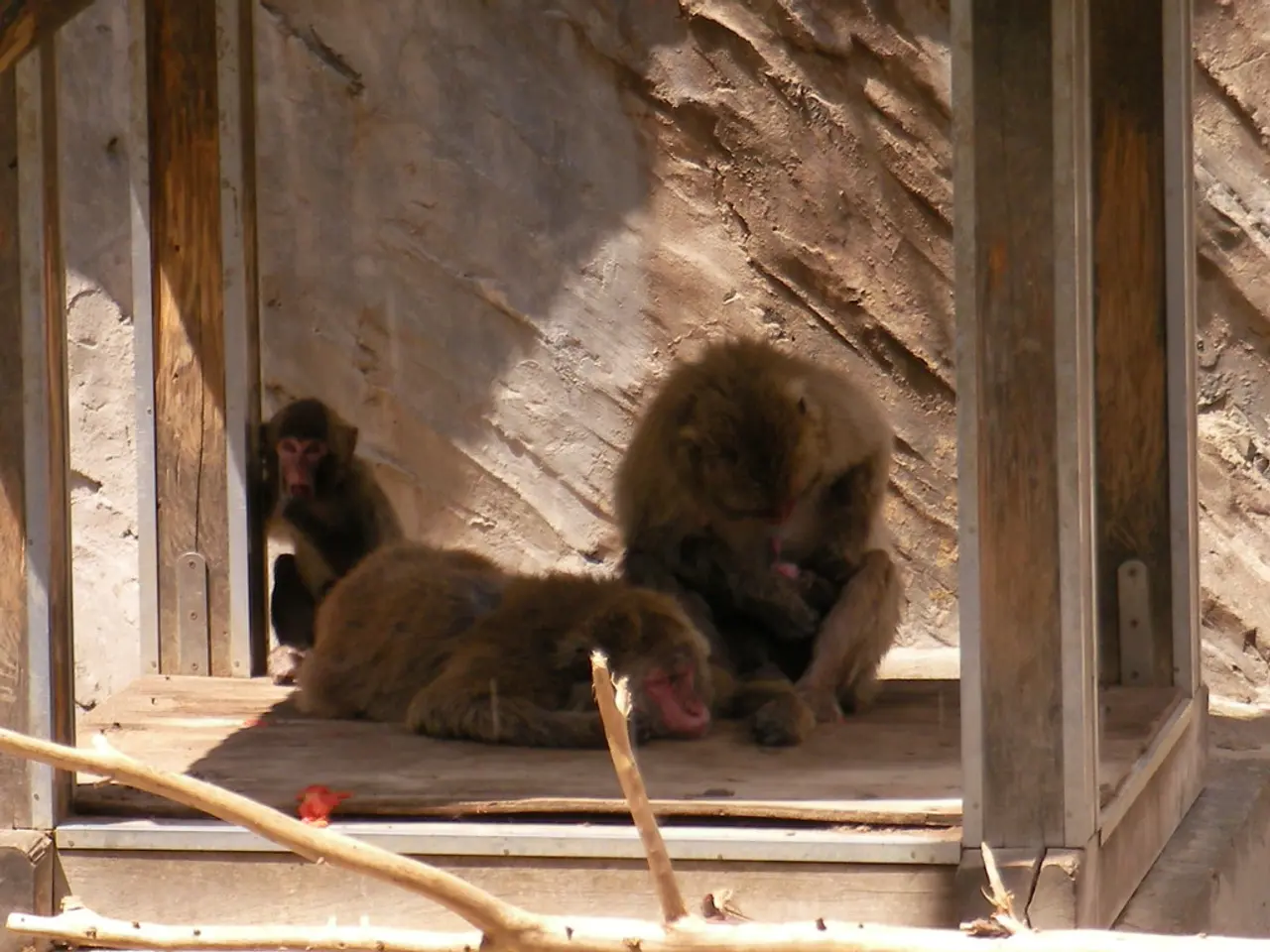Zoological leader plans to eliminate additional wildlife
The Nuremberg Zoo has found itself in the midst of a heated controversy, following the culling of 12 baboons due to overcrowding and lack of space to accommodate the growing population. The decision, which has sparked significant public outrage and legal complaints, has raised strong ethical debates about zoo population management, animal welfare, and the balance between conservation and humane treatment of animals.
The zoo's director, Dag Encke, has defended the culling, stating that it was a necessary measure to maintain a reserve population and ensure the species' survival. Encke believes that the logic behind the decision is sound, but the future of zoos in their current form may be at risk.
The culling process involved the dismemberment of six baboons, with their remains being fed to predators like lions, tigers, maned wolves, and marbled polecats. Their heads and brains were removed for scientific research. The zoo justified its actions, citing population control, dental health benefits for carnivores, and the avoidance of unpleasant sights for visitors during feeding.
However, the decision has not been well-received. Animal protection organizations, such as Doctors Against Animal Experiments, have condemned the killings and the use of the animals' heads for research purposes. The public and animal rights groups have filed over 350 complaints with the German public prosecutor's office, and the zoo has faced backlash in media and from various organizations for killing healthy baboons despite protests.
Encke has received death threats in response to the culling, and the situation at the Nuremberg Zoo remains under scrutiny from animal rights activists. The German public prosecutor's office is involved in the investigation of the baboon killing, and the controversy continues to escalate.
Despite the criticism, Encke stresses the importance of human responsibility in preventing species extinction and views the breeding of baboons as part of species conservation. He hopes that the case regarding the baboon killing will be dropped and is confident he can prove its necessity scientifically.
The Nuremberg Zoo is not the only facility facing space constraints. Further killings of other animals, including crowned lemurs, lemurs, and gorillas, may follow due to space limitations. The situation at the Nuremberg Zoo serves as a stark reminder of the ethical dilemmas that zoos face in their efforts to balance conservation and animal welfare.
- Encke, in his defense of the baboon culling, believes that this decision could set precedents in the field of vocational training, specifically in the area of zoo population management, where grooming future zoo directors to make tough choices for the survival of species may become a part of the community policy.
- In light of the health-and-wellness concerns raised by animal protection organizations against the Nuremberg Zoo's practices, there have been calls for improved mental-health care for all animals in captivity to ensure their Fitness-and-exercise, nutrition, and overall well-being.
- The scientific research derived from the baboon culling, involving the study of their heads and brains, could potentially lead to breakthroughs in understanding various aspects of primate behavior, cognitive functions, and evolution, ultimately enriching our knowledge in science and paving the way for better conservation efforts.




